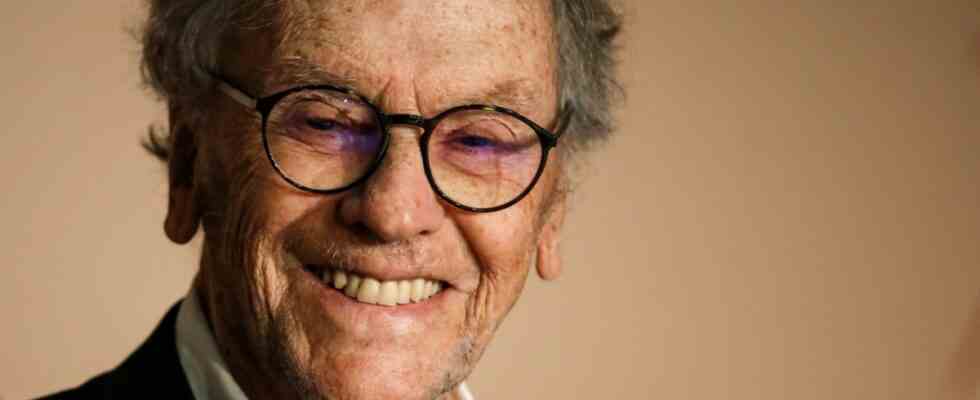A closed face behind which God knows what could be going on. Being absorbed in oneself, oscillating between rigidity and moments of driving one’s skin out. But also an insouciance that made him the hero of youthful romances and great love films. “I chose him because whenever I think of him, two adjectives immediately spring to mind: moving and shady,” director Bernardo Bertolucci said of Jean-Louis Trintignant.
One of the great actors of French cinema is dead, and perhaps that’s why he didn’t become the name the biggest billboards wooed to viewers – he liked to be the man in the twilight. He seemed to revel in being difficult to read. He never showed real determination as a seducer, but he never seemed fully focused as a killer either. But it was precisely this that gave him the opportunity to be in countless film classics and to shape them with his presence.
That ranges from the shy husband at whose side Brigitte Bardots achieved world fame in 1956 in “And the woman always lures”. About the racing driver alongside Anouk Aimée who introduced the French to the complexities of modern relationships in Claude Lelouch’s well-loved A Man and a Woman. It continues with the agent and contract killer of the Italian fascists, whom he unforgettable embodied in Bertolucci’s “The Conformist”, and at the end there are the great late works for Michael Haneke, above all the death fugue “Love” with Emmanuelle Riva.
Jean-Luis Trintignant, born in Piolenc in the Vaucluse department in 1930, wanted to be a racing driver in his youth, like his uncle Maurice – this is one of the reasons why his racing driver romance seemed so authentic. But then he decided to start at the theater. “I wanted to get rid of my almost morbid shyness. I hoped acting would loosen me up.” After all, he took part in more than 160 films, including the names of many great auteur filmmakers: Éric Rohmer, Costa-Gavras, Claude Chabrol, Ettore Scola, François Truffaut, Krzysztof Kieślowski.
He experienced several major phases in his career, but he was particularly memorable as the face of the 1960s, a man of change between yesterday and tomorrow. His face was always a little too soft for the really tough roles, and too virile to really be a soft character. In Bertolucci’s “The Last Tango in Paris” he was initially intended as the main actor for the role that Marlon Brando then played. It would have been a completely different film – no greater contrast can be imagined than that between Marlon Brando’s Actors Studio exposure and Trintignant’s minimized forms of expression.
Although he worked with almost all important directors during this time, Francois Truffaut was absent for a long time. This irked Trintignant so much that he wrote a letter to the director in 1979: “I would have loved to have acted in your films. I am convinced that you would have been satisfied with me as an actor. Maybe there is something about me or about my nature play what you don’t like?”
The answer came as a surprise to him too: Truffaut saw himself in Trintignant, he considered him the only actor who could have taken on the roles he played personally in his films. In 1983 there was still a collaboration in Truffaut’s last film “Auf Liebe und Tod”. Trintignant was allowed to appear with Fanny Ardant: “Because he has this neutral tone of presentation that avoids any showmanship, which allows women to develop unhindered at his side,” explained Truffaut. And it’s true: All the legendary women at his side – several times, for example, Jeanne Moreau, for example in “Mata Hari”, Romy Schneider, for example in “Das wilde Schaf” and Catherine Deneuve in “Die Unfettered” – he took them nothing gone with his game, created no competitive situation. It just made her shine all the more.
In his very late films with Michael Haneke, something else comes along, an indelible knowledge of the cruelty of fate and the vulnerability of love. Trintignant made it after his daughter Marie was beaten to death by her partner, singer Bertrand Cantat, in 2003 and he had retired from the film business for many years. The fact that he still let his audience look into his heart again, maybe more than ever before – that’s what makes Haneke’s “Love” and “Happy End” so unique. And it fills us viewers with gratitude at the news that this great connoisseur of all things human passed away on Friday. He was 91 years old.

